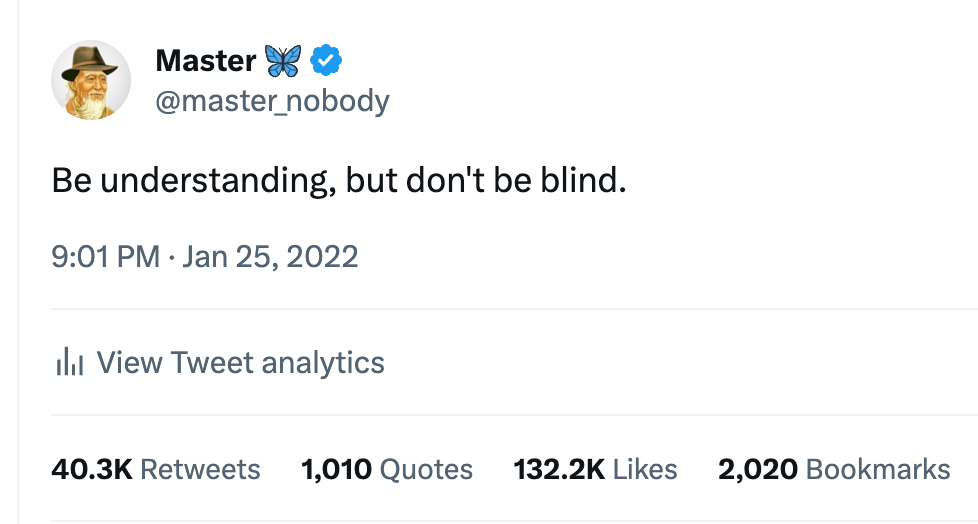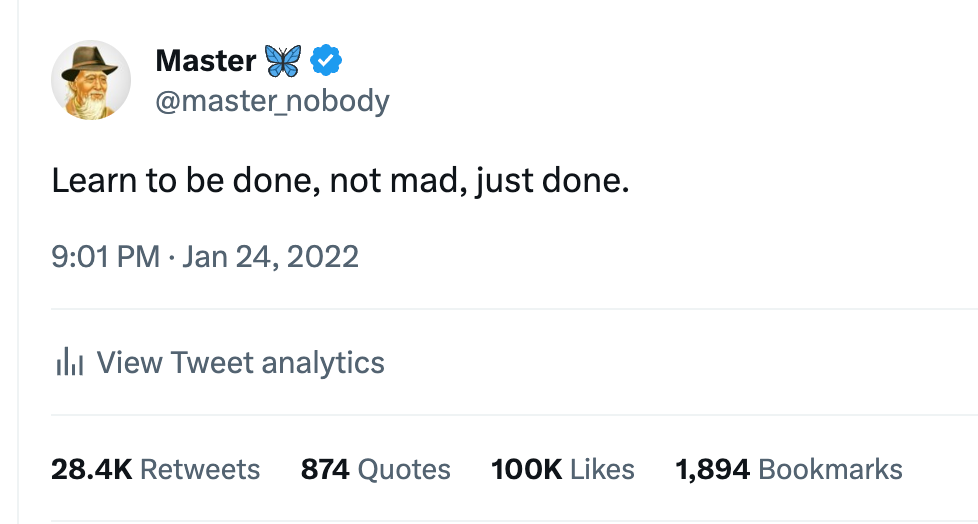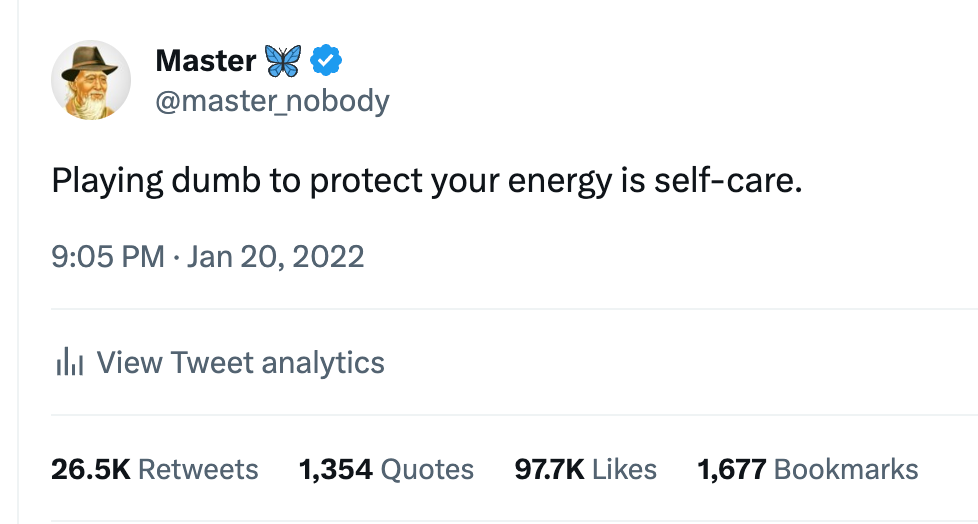We all have this desire to become the best at what we do.
There is no secret formula, and I don’t claim that I’m the best at what I do. I understand it’s a lifelong journey. But I’ve gathered some lessons from my pursuit of refining and perfecting my craft, (which is writing in my case).
So today in this letter, I’ll be sharing ‘3 powerful lessons’ with you that may help you become at least 1% better at what you do.
Let’s dive in.
The Biggest Roadblock
Robert Cialdini, in his book ‘Influence’ has described this powerful principle called Social Proof.
This principle states that:
“We determine what is correct by finding out what other people think is correct.”
We view an action as correct in a given situation based on how many people are performing it.
You must have experienced this multiple times in your own life. When we have no clue how to do something, we automatically start looking at how other people are doing it.
Let’s say, for example, that you want to buy a new phone. We never really put a lot of thought into what our own needs are or what we’ll be using it for. We go with the “most popular” tag (that’s what makes iPhones such a big hit).
The advertisers don’t have to convince us that their product is good, they only need to show that many others think so. Which is proof enough.
This kind of behaviour is seen in almost all parts of our lives.
- We choose a career based on the one that makes the most money.
- We choose a business based on what’s hot right now.
- We choose food based on web articles.
- We choose a workout based on YouTube fitness coaches.
- We choose our life-partner based on dating gurus’ green flags & red flags stuff.
- We choose a place to live based on reviews on real estate websites.
Keep an open mind here. I’m not saying there’s anything wrong with it. We behave in such a way because, back in the day, when we lived in the jungles, survival was dependent on that kind of information. If your friends told you there is a tiger up north, you’d avoid strolling around that area. It was not an opinion, it was a fact.
But now, things have changed. It’s a new world. Now it’s not about survival, it’s about personal taste. It’s the world of competent marketing. And whoever has the most social proof wins.
So, to become the best at what we do, our goal should be not to blindly follow opinions, but to use our rationality to choose what works best for us.
Here’s how.
Lesson #1: Stay inside your circle of competence

I learned this concept from Warren Buffet.
He was asked in an interview why he didn’t invest in companies like Microsoft during the dot com boom back in the 1990s. And this is what is said:
“Know your circle of competence, and stick within it. The size of that circle is not very important; knowing its boundaries, however, is vital.”
You can do anything, but not everything. And knowing what you cannot do is as important as knowing what you can.
When I started out on my journey as a writer, I tried everything. Youtube, short films, movie scripts, song writing, novels, and blogs. Anything really that was related to writing. And naturally, I struggled. My focus was all over the place.
Eventually, with a string of failures, I learned that it’s better to do one thing well instead of wasting my time and energy trying to do everything.
The greatest example of this is Apple’s iPhone. Apple’s competitors launch ten different phones every year. But Apple makes only one iPhone. That’s why they are so successful. Because they have managed to focus all their brain power and resources on making one great product.
When you stay inside that circle of competence, you can focus on your skills and talent, creating something that’s of high quality and stands out.
Lesson #2: Let your actions be guided by your core-values
Confusion and inner-conflict are clear signs that your actions are not aligned with your values.

James Cameron did that because he valued quality over quantity. And his actions are guided by what he values. It shows in his movies. That’s what makes them stand out. He creates the kind of art that you’ve never experienced before.
When I started out on Twitter, I used to write one liners. Every tweet got an average of 20–30K likes. Some of them even crossed 100,000.

 .
. 


But, I wanted to give more value to my audience. I wanted to help them with what I’d learned and experienced. And one line was not enough.
So I changed my style and started writing exclusively for introverts, my engagement dropped, but my DMs were full of thank-yous and blessings. For me, they meant way more than any number of likes or RTs.
I didn’t just want an audience, I wanted true fans. And you have to earn them. And it is only possible when you’re doing work that is aligned with your values.
Lesson #3: Learn the fundamentals and then do your own thing
When Elon Musk decided to launch SpaceX and build rockets, he faced a big problem: Rockets were expensive.
But that was a common opinion. He rejected it and started from scratch. And used the ‘First Principles Approach’ to find a solution.
Here’s what he said:
“Boil things down to the most fundamental truths and say, ‘OK, what are we sure is true, or as sure as possible is true? ‘ And then reason up from there.”
Imagine you decided to start your own online business. You learn the fundamentals to understand how to launch a successful business.
What do we do next? Ideally, we should start practising what we’ve learned. But instead, we start reading other books or examples of successful people. You get influenced by their success. And you blindly start copying their style. Without ever expanding your own perspective on the fundamentals.
But when you learn the fundamentals and take your time to reflect on them, you start making connections with the knowledge you already have. You start understanding it on a deeper level.
The most common cause of failure is that, despite all that knowledge, you’re not able to use it successfully, because you never did your own thinking about the fundamentals.
But when you do your own thinking after learning your basics, you hammer that information into deeper insights and convert those insights into actionable skills.
You develop your own style. You understand it from first principles basis, and you can use that knowledge for maximum impact and results.
Learn the fundamentals, and then do your own thinking. Make your own frameworks and systems before you step into the outer world for specific examples.
Build on the basics based on your own understanding and experience, not those of other people.
Conclusion
‘Believe in yourself’ may sound like a cliche, but it’s still the most powerful aphorism.
Think before you act. Be aware of this psychological bias of social proof. Train your mind to make decisions based on your own needs and not on other people’s opinions.
Trust in your own wisdom. Do less, but better. And above all, do what you deeply value in your heart.
Because when you tune out all the noise and start following that inner guidance, no one can stop you from becoming the best at what you do.
2 Ways I can I help you:
1. Mastery Mentorship Program: If you’re an introvert and feel lost in life, join the ‘Mastery Mentorship Program’ where I guide you how you get over your limiting beliefs, discover your zone of genius, and become the best at what you do.
2. Awakening: A 30 day Self-transformation Program: Learn how to unlock your hidden potential, find your life’s purpose and reach the heights of success.


